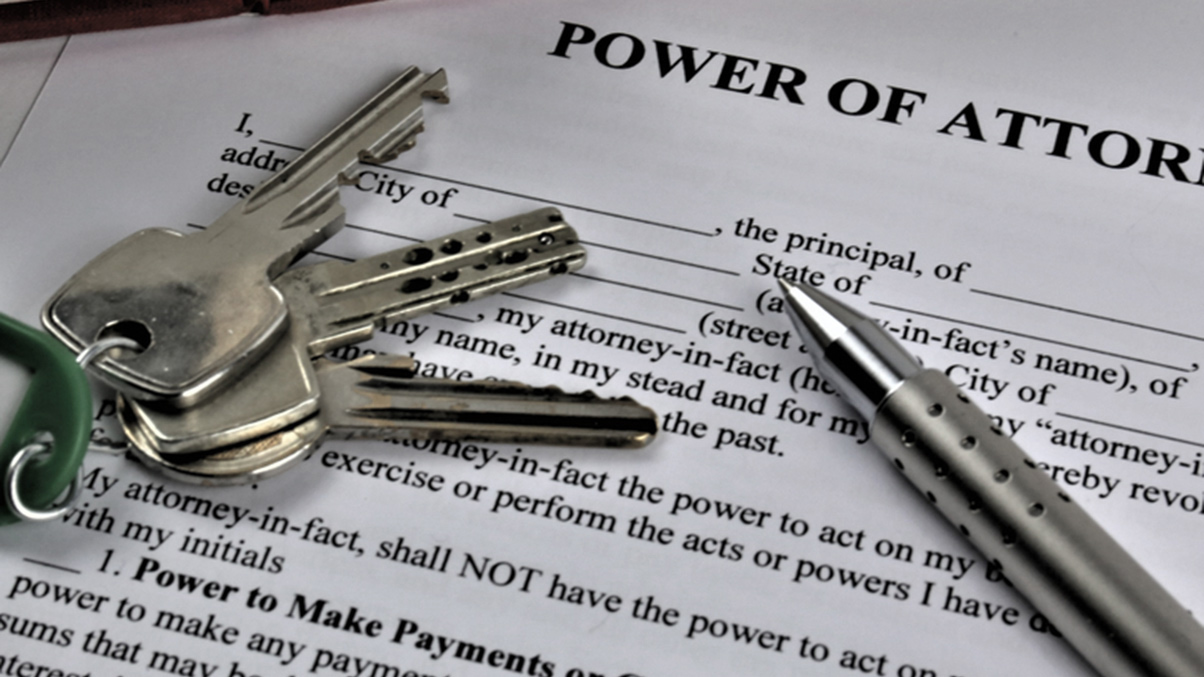A power of attorney is a legal document giving an individual who has ‘mental capacity’ the power to nominate another person to make decisions on their behalf should they be unable to do so in the future or if they no longer want to make their own decisions.
Powers of attorney can be very helpful if you have been in an accident and find yourself in hospital, as they enable you to choose an ‘attorney’ who can take care of your money or liaise with your banks while you focus on recovering from your injuries. Shivani Patel draws on the experience of our pro bono Legal Service team to answer frequently asked questions about powers of attorney.
I’ve been in an accident and will be in hospital for some time. Do I need a power of attorney so that my spouse/partner can speak to my bank about my account?
It is advisable to think carefully about whether you wish to execute a power of attorney in this situation. You do not necessarily have to authorise someone to manage your financial affairs simply because you are in hospital as there are other ways family and friends can assist you. One option is to provide your bank with verbal authorisation for who you wish to deal with your affairs. Alternatively, you could provide written permission by way of a ‘form of authority’ to notify your bank who you would like them to correspond with in relation to your account.
A power of attorney can be a useful tool if you wish to focus on your recovery while in hospital and have financial matters that you need assistance with.
I have suffered from a spinal cord injury and can’t sign my power of attorney. What are my options?
If you are unable to sign your full signature, a mark on the document is sufficient. However, if you cannot hold a pen, you can use a thumbprint instead, which must be witnessed in the same way as a wet ink signature. You are also able to instruct someone to sign your power of attorney on your behalf.
What’s the difference between an ordinary power of attorney (OPA) and a lasting power of attorney (LPA)?
An OPA gives another person authority to act on your behalf for a specified or indefinite time. However, it is important to note that this authority ends as soon as you lose mental capacity or revoke authority. OPAs are most useful to help you authorise someone to make decisions in relation to your property and finances on your behalf temporarily while you are recovering from an injury, for example. It is important to note that you are unable to make an OPA for health and welfare decisions.
On the other hand, LPAs do not have an expiry date and will last until you die or revoke authority. You can choose to execute either or both a ‘property and financial affairs LPA’ or a ‘health and welfare LPA’. A property and financial affairs LPA enables your attorney to manage your finances, liaise with your banks on your behalf and ensure your money is safe.
A health and welfare LPA allows your attorney to take decisions in relation to your health and wellbeing, such as your medical care and living arrangements, when you lose mental capacity to make such decisions.
An LPA can only be used once it has been registered with the Office of the Public Guardian (OPG). If you do not want your attorney to make decisions about your property and financial affairs straight away, you should make sure your LPA states that they should only be able to make decisions on your behalf once you have lost mental capacity.
I have sustained a serious injury and would like to complete an LPA application while recovering in hospital. Can I complete the application process online?
Although you can fill in the LPA form online, you cannot take any further steps online. Once you have completed the LPA form online, you must print the form so that you, your attorneys, witnesses and certificate provider sign the same original form. A certificate provider is an impartial person who confirms that you understand the implications of executing an LPA and that nobody is forcing you to make one. Digital signatures will not be sufficient.
Once everyone has signed the LPA form in wet ink in the correct order (see below), the original form must be posted to the OPG for registration together with the registration fee (currently £82 per LPA).
To complete an online LPA form, visit the government’s website.
I am currently living in a care home 20 miles away from my attorneys, and we can’t all sign the LPA form at the same time. What do we do?
Not being able to meet at the same time to sign the LPA form is not a problem. The original form can be signed at different times, but everyone must sign it in wet ink. There is a specific order in which the form should be signed. Failure to sign the form in the correct order will result in the OPG rejecting the LPA application.
LPA forms should be signed in the following order:
- You, as the donor, must sign the LPA first. Your signature must be witnessed. The witness must be over 18 and cannot be an attorney or replacement attorney. The witness must sign the form as your witness and provide their details.
- Next, the certificate provider should sign the LPA.
- Lastly, all attorneys and replacement attorneys must sign the LPA in the presence of witnesses. The witnesses must also sign the form and provide their details.
My family member is in hospital for ongoing medical treatment and might be there for an extended period. How can they get a power of attorney for financial affairs?
When considering a power of attorney, it is important to check whether your family member has the mental capacity to nominate another person to make decisions on their behalf and wants to undertake these steps.
If you are unsure whether your family member retains the mental capacity to execute the power of attorney in question, you should speak to their treating team at the hospital. They will then be able to assess the patient to determine whether they have the mental capacity to execute a power of attorney or not.
If they have mental capacity, it is helpful to note that OPAs involve a quicker process than LPAs. While you cannot use an LPA until it has been registered, which can take up to 20 weeks, OPAs can be used as soon as they have been executed. Therefore, executing an OPA to allow an attorney to make decisions about certain bank accounts may be helpful so that your financial affairs can be sorted quickly and without delay.
I am currently in hospital recovering from my injuries after being involved in an accident. Do I need to provide my original LPA to my bank to allow my attorney to manage my bank accounts?
In short, you do not have to provide your original LPA to your bank. You could provide them with a certified copy of your LPA, which can be made in one of two ways. Firstly, a solicitor could create certified copies for you for a small fee. Secondly, you as a donor could create certified copies of your own LPA by writing specific wording on the bottom of each page (which can be found here). The original LPA must not be marked in any way once registered, as this could invalidate it.
Alternatively, you could use the new Use a lasting power of attorney service, which the OPG recently developed as an online tool to allow donors and attorneys to give organisations such as banks access to view an online summary of an LPA. Ordinarily, you are required to send certified hard copies of the LPA to an organisation, and it can take weeks for it to be verified and for you to be established as an attorney on the account.
However, using this online system will allow the banks to view the LPA instantly and should result in you being granted access to bank accounts more quickly as an attorney.
To make a referral to The Legal Service, please contact Kara Smith by phone on 020 7822 8000 or by email at ksmith@stewartslaw.com.
Subscribe – In order to receive our news straight to your inbox, subscribe here. Our newsletters are sent no more than once a month.
You can find further information regarding our expertise, experience and team on our Personal Injury pages.
If you require assistance from our team, please contact us or alternatively request a call back from one of our lawyers by submitting this form.





